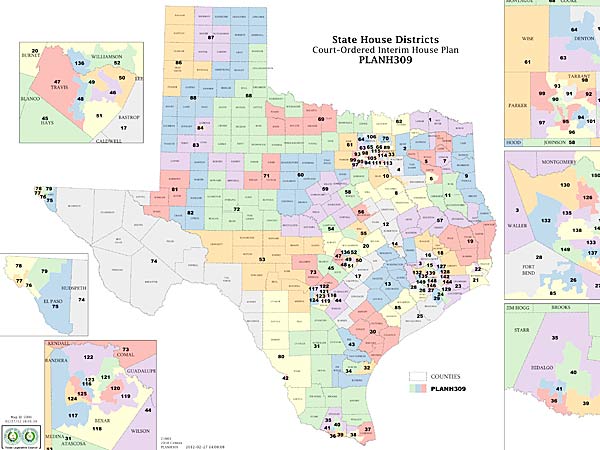
Texas statewide redistricting plans were overturned Tuesday by federal district court judges in Washington D.C., providing credence to the charge that the plans discriminates against Latino voters.
The state was seeking preclearance under section 5 of the Voting Rights Act. This section requires lawmakers to get approval from the federal government before enacting laws based on the state’s history of discrimination.
Civil rights organizations presented evidence in court suggesting that Republican legislators were purposefully drawing districts and pushing Latinos into non-Hispanic white and Republican majority districts. Critics argued the maps could provide more leeway for Republicans to gain against Latinos who favor Democrats, while advocates stated that considering the growth of the Latino population there should be a district that allowed a Latino to get elected.
Since the burden of proof fell on Texas, the judges agreed not enough evidence was provided to explain the contrary that the maps were not draw to discriminate against Latinos.
“I think clearly it’s a representation of the obvious of what we’ve been saying this whole time: The face of the state of Texas has changed by the day, yet our political line and our political representation still represent the views of a very old Texas,” said chairman Trey Martinez Fischer of the Mexican American Legislative Caucus.
Fischer said this decision digs a deeper hole for Republican legislators who continue to challenge it, but the big question now lies on when these maps are going to be redrawn for 2014 and how the district court in Texas will proceed.
Jose Garza, counsel of MALC, later clarified that the current interim maps – drawn by the San Antonio federal court and agreed by the state and minority groups – are more likely to stay in effect for the November election, but they’re still looking to seek modifications on the issue. Therefore, it would not affect the districts in the upcoming elections.
Despite the victory chanted by civil rights groups, Texas Attorney General Greg Abott was quick to assert that he would appeal this decision to the Supreme Court.
“Today’s decision extends the Voting Rights Act beyond the limits intended by Congress and beyond the boundaries imposed by the Constitution,” Abbott said.
Fischer countered that it would make more sense to draw a remedy.
The panel ruled that the Congressional Plan reduces Latino voting strength and was enacted with discriminatory racial intent. It also ruled that the State House Plan reduces minority voting strength, and the State Senate Plan was enacted with discriminatory racial intent.
Litigators against Texas affirmed that the decision was virtually unanimous, with very narrow dissent.
The redistricting maps were a contentious subject for many civil rights organizations who followed suit including the Mexican American Legal Defense Fund and the Mexican American Legislative Caucus.
Thomas A. Saenz, MALDEF President and General Counsel, stated that Texas should abandon any legal action and instead should work quickly to comply with the Voting Rights Act.
“The intransigent refusal of Texas officials to comply with the Voting Rights Act (VRA), particularly with regard to the state’s rapidly-growing Latino population, has once again resulted in the possibility that Texas will be grappling with congressional and legislative redistricting well into the decade,” he stated.
This article first appeared on Voxxi

Recent Comments